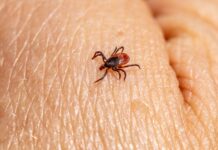In their quest for better plant-based proteins, Halifax-based company Smallfood scoured the ocean for the world’s tiniest sources.
They’ve spent the past decade uncovering over 20,000 unique microorganisms — single-celled organisms that represent the simplest and most ancient food sources on Earth. From these, they isolated one particular strain of microalgae that makes excellent plant-based protein. Think of them as tiny plants that use far less land and water resources to produce the same amount of protein as traditional agriculture.
Smallfood delivers complete protein that has more similar composition to animal-based sources than soy or pea protein, especially with respect to amino acids threonine and methionine that tend to be lacking in a vegan diet.
The microalgae can be grown in vertical bioreactors that take up a small land footprint, and a batch can be processed in a week. That compares to months from the point of planting crops to having food on the table, and years for raising livestock for animal-based protein.
Protein aside, the process also yields omega-3s, lipids, and antioxidants that are considered premium food ingredients. The product can be part of a stable year-round supply chain. It is easily dissolved and has a neutral taste, making it easy to incorporate into drinks, foods, and supplements.
This innovation comes at a time when there is mounting pressure to change the way we produce enough food to feed the growing human population. Agriculture is one of the main drivers of climate change, and yet malnutrition remains a persistent global problem. We already use half of the Earth’s habitable land for agriculture, and this practice isn’t sustainable; farm land is already infringing on important habitats for wildlife.
Going back to the base of the food chain helps reduce the amount of energy that goes into food production. Because every single-celled organism grown by Smallfood is identical, there is no energy lost to inedible parts of the plant.
Microorganisms fill a unique niche by being highly energy efficient, fast to grow, and yet capable of producing all sorts of interesting molecules, including the ones that could help keep us fed. As the world looks for ways to live more sustainably, this is a promising option for eating well without sacrificing the planet.





































